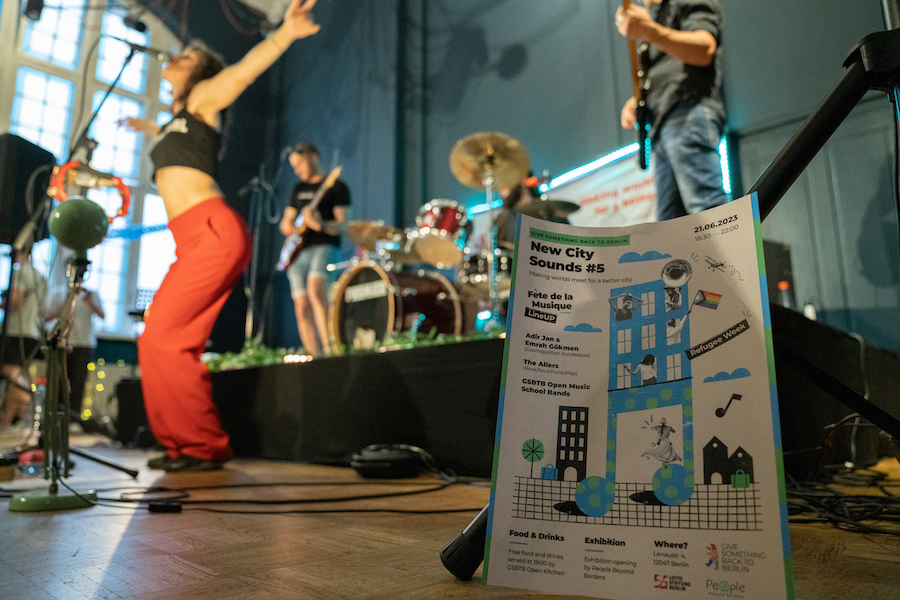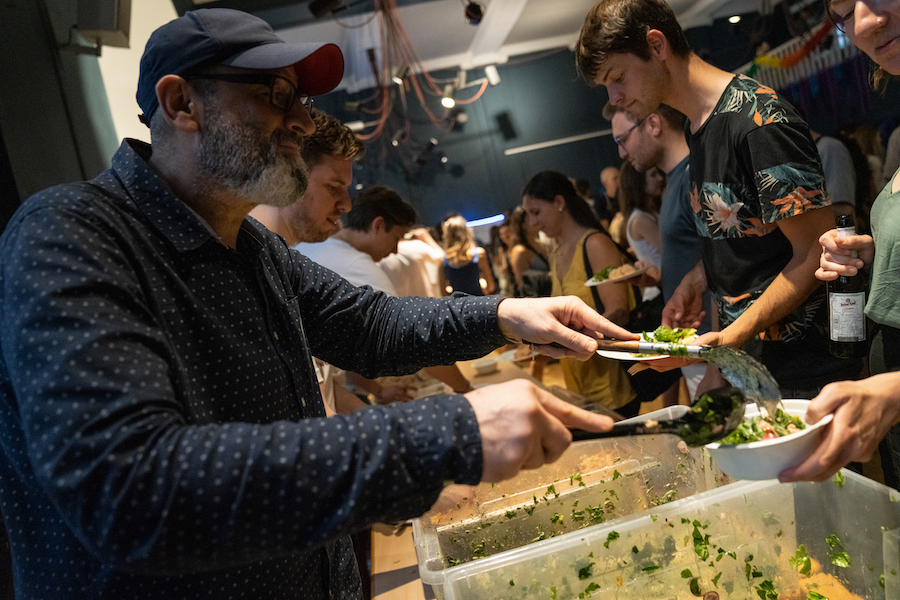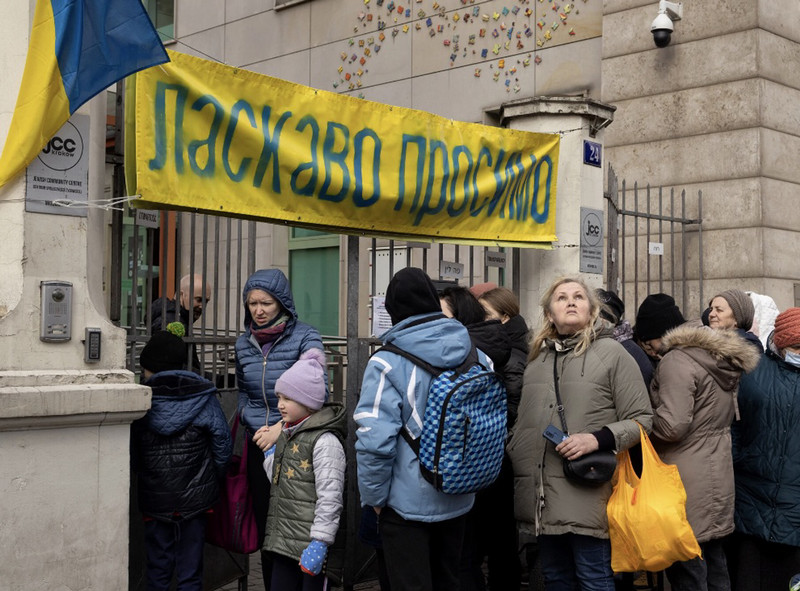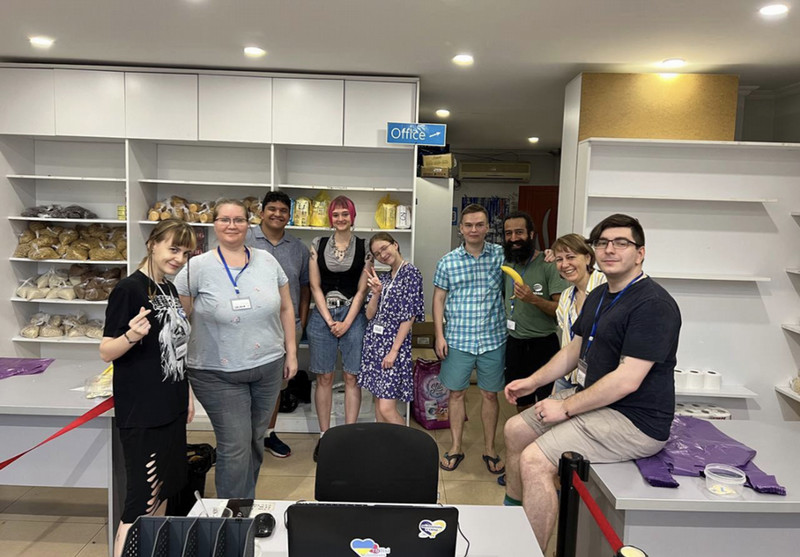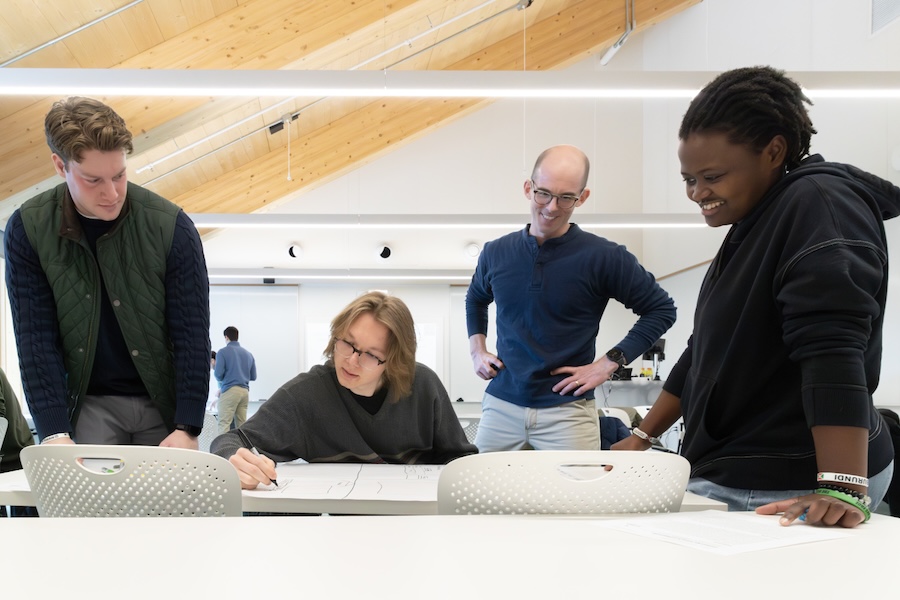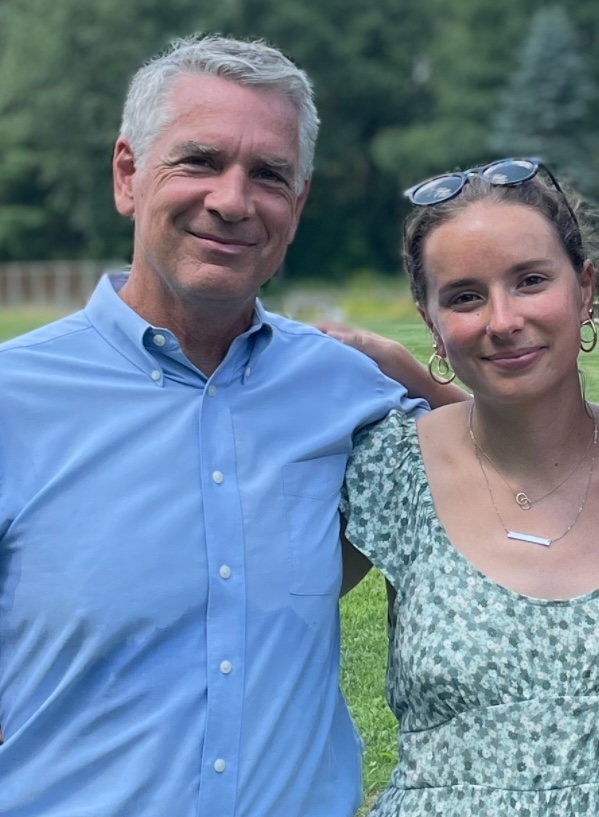Helping Refugees in Europe
By Tom Porter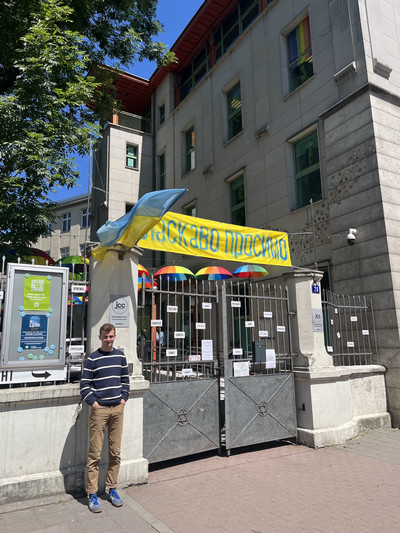
Thanks to a grant from Bowdoin’s Russian department, Gramley spent much of the break as an international language volunteer in Krakow, Poland, where he worked at the distribution centers of two aid organizations.
Those groups are the Jewish Community Center of Krakow and the Dobro Zawsze Wraca Foundation (Polish for “the good always comes back”), both of which are working hard to help some of the millions of Ukrainian refugees who have entered Poland since their country was invaded by Russia in February 2022.
Gramley used his language skills (most Ukrainians speak Russian) to translate between refugees, staff, and English-speaking volunteers. Each day, he said, he organized resources to provide food, clothing, and administrative help to the 300 to 400 refugees who rely on these organizations for their daily needs.
“Throughout my time in Poland, it was made abundantly clear to me how disastrous the ongoing humanitarian crisis in Ukraine really is,” said the religion and Russian double major. “However, it was exceedingly meaningful to employ my Russian language abilities to make a small difference abroad.”
Chunwen Ko ’25 spent the summer in Berlin, Germany, working for a nonprofit that promotes integration between new immigrants (including Ukrainian refugees) and longtime locals. The group, called Give Something Back to Berlin (GSBTB), provides free courses and activities in which Berliners from different backgrounds, whether newly arrived or born-and-raised, can learn, create, and share together, explained the government and Russian double major. Activities include music classes (open to all skill levels), community dinners, a weekly art space, and German language classes.
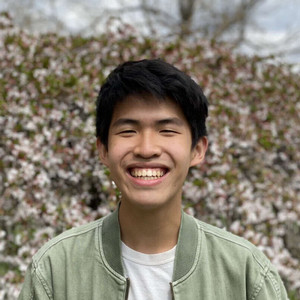
As a projects intern, Ko said most of his work was hands-on and covered a lot of tasks. “For example, in July, we held a two-week music camp for teenagers from refugee and migrant backgrounds, during which I helped with meal planning and cooking,” he explained. Ko, who was funded through a grant from Bowdoin’s Office of Career Exploration and Development, also compiled newsletters, updated information on the organization’s database, and physically organized office and project spaces (“which really meant I attempted to tackle our growing mountain of art supplies!”). As well as using his Russian language skills to communicate with some of the refugees, Ko also gained a proficiency in German, having spoken “next to nothing” of it when he arrived. All of which, said Ko, made the job a very fulfilling experience.
“A large part of why I wanted to work for GSBTB was because of my own background as an immigrant in the US. I wanted to learn more about the lives of immigrants and refugees in other countries, and Germany is notable for having accepted many newcomers,” he said. “With increasing numbers of refugees and asylees seeking safety in Europe and the rise of reactionary nativism,” added Ko, “it is an especially interesting time to be here and experience for myself what diversity and integration can look like in Berlin in 2023.”
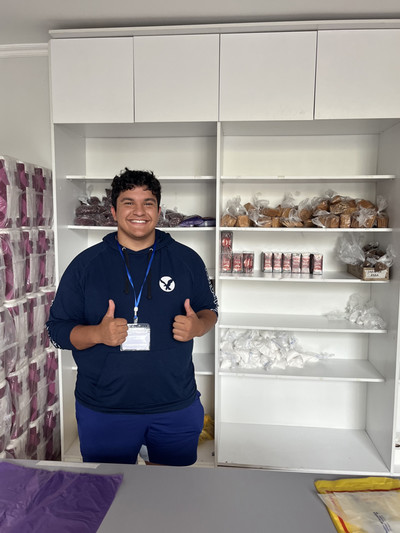
Colby Santana ’23 is working with refugees in Tbilisi, Georgia, where he is spending eight weeks as the recipient of a prestigious Critical Language Scholarship (CLS) awarded by the US State Department.
Santana’s Russian language skills had already been sharpened by a summer spent in the central Asian country of Kyrgyzstan last year, again funded through a CLS award. He will soon be returning to Kyrgyzstan for a ten-month stint teaching English as a Fulbright scholar.
Santana, who majored in Russian at Bowdoin, knew he wanted to help the Ukrainian refugee population in Georgia, so he reached out to a group called Volunteers Tbilisi about a month and a half before heading there. “I wanted to help the Ukrainian refugee population that had resettled here in Tbilisi and to use my Russian in ways that didn't just benefit me,” he said.
There are an estimated 26,000 Ukrainian refugees currently living in the Georgian capital, and Volunteers Tbilisi helps them access medical care, housing, and other essentials. Santana’s work has included helping to distribute supplies of donated goods, from rice to laundry detergent. Some of those he helps are also Russians who have fled to Georgia after being displaced by the war in Ukraine.
Santana works directly with many refugees to help assess their needs, although he admits that a decrease in both funding and donations recently has made it harder to give people what they require. In addition to these duties, Santana “bounces around,” helping out where he can and providing translation services when needed—something that tests his linguistic skills to the limit. “Encountering people who have lost so much in the face of violent attack can sometimes be depressing,” he said, “but at the same time, to help them is incredibly rewarding work, and the people I work with are amazing.”
SLIDESHOW:
